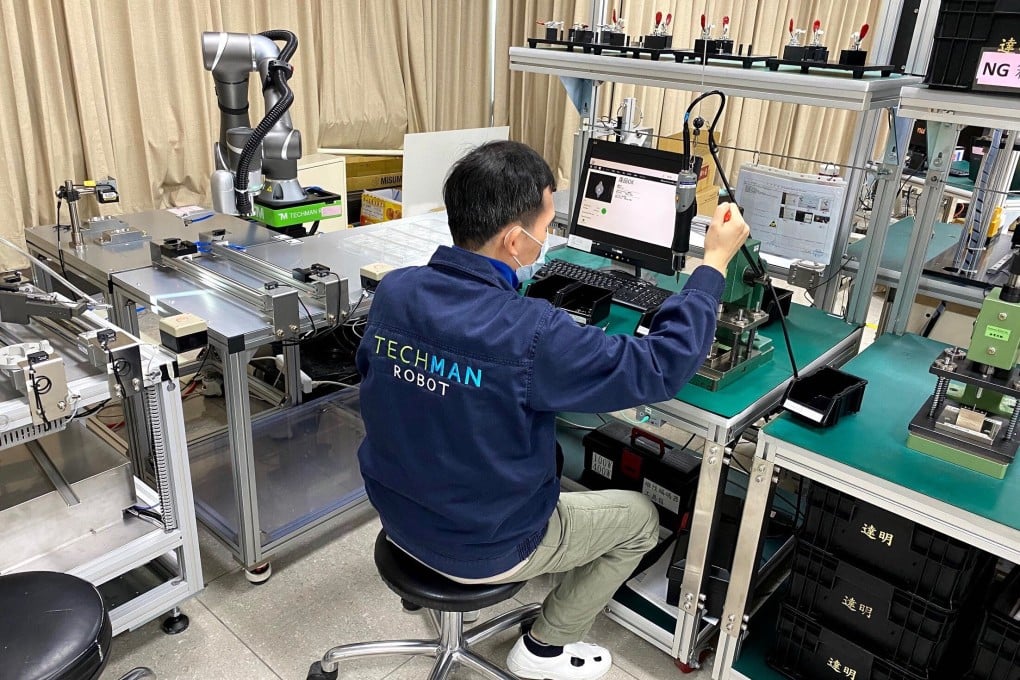Taiwan manufacturers come home from China, as trade war feeds into economic debate at election
- Government in Taipei has rolled out the red carpet for manufacturers looking to avoid US-China trade war tariffs, acting as a boost to the economy
- Economic impact of returning companies a cause of debate in Taiwan’s election campaign, with opposition party the Kuomintang claiming it has been exaggerated

Against a bright blue sky, a crane is busy laying a foundation for a building site in Taoyuan, a city near the Taiwanese capital of Taipei that is home to many of the island’s hi-tech manufacturers.
A few hundred metres away, a light brown fog of dust and exhaust fumes rise from the site, the smell permeating the air. When finished, this hub of construction activity will be home to a NT$950 million (US$31.6 million) production complex for Quanta Computer, the world’s largest original design manufacturer of notebook computers, its third in the area.

In order to start production right away, however, Quanta had to ask for help from a subsidiary company, Techman Robot, which had to vacate its facility so that Quanta could move in.
“Quanta didn’t have any production facilities in Taiwan two years ago, as it had gradually moved production lines to mainland China over the past decades. We sort of gave them our facility overnight, and we needed to find a new facility on our own,” Scott Huang, the chief operating officer at Techman Robot told the South China Morning Post.